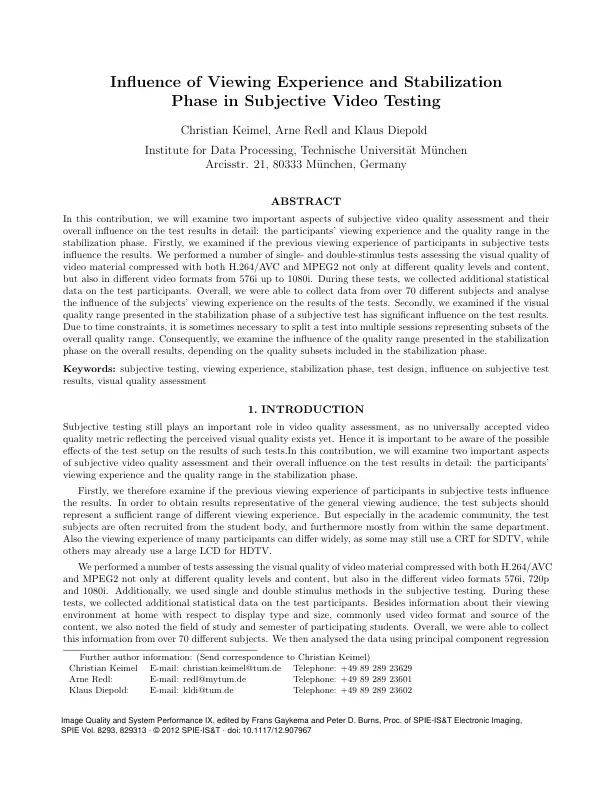
Abstract
In this contribution, we will examine two important aspects of subjective video quality assessment and their overall influence on the test results in detail: the participants’ viewing experience and the quality range in the stabilization phase. Firstly, we examined if the previous viewing experience of participants in subjective tests influence the results. We performed a number of single- and double-stimulus tests assessing the visual quality of video material compressed with both H.264/AVC and MPEG2 not only at different quality levels and content, but also in different video formats from 576i up to 1080i. During these tests, we collected additional statistical data on the test participants. Overall, we were able to collect data from over 70 different subjects and analyse the influence of the subjects’ viewing experience on the results of the tests. Secondly, we examined if the visual quality range presented in the stabilization phase of a subjective test has significant influence on the test results. Due to time constraints, it is sometimes necessary to split a test into multiple sessions representing subsets of the overall quality range. Consequently, we examine the influence of the quality range presented in the stabilization phase on the overall results, depending on the quality subsets included in the stabilization phase.